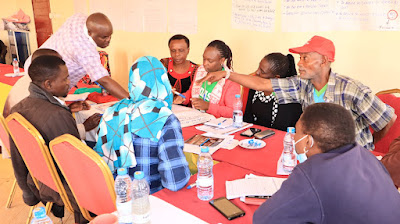One significant barrier to
adopting a plant-based diet is the misconception that it lacks essential
nutrients. Community forums provide an opportunity to debunk myths, share
evidence-based knowledge, and showcase affordable, locally available plant-based
foods that meet nutritional needs. Inviting nutritionists and healthcare
professionals to these dialogues can build trust and credibility, helping
people make informed decisions for their health. The environmental impact of
food systems is a growing concern, but for many, this connection remains
abstract. By engaging communities in discussions on deforestation, water
scarcity, and greenhouse gas emissions linked to meat production, advocates can
make these issues tangible. Linking global challenges to local realities—such
as soil degradation or erratic rainfall—helps individuals understand how
plant-based diets contribute to preserving their environment and livelihoods.
People are more likely to embrace
change when they feel a sense of ownership. Community dialogue fosters this
ownership by shifting from top-down persuasion to collaborative
problem-solving. Participants can share their experiences, voice concerns, and
suggest solutions that work within their specific contexts. When the
conversation feels inclusive, plant-based diets become less about imposition
and more about empowerment. Transitioning to plant-based diets can create
opportunities for local farmers, food processors, and entrepreneurs. By
engaging communities in discussions, stakeholders can explore how to boost the
production and processing of plant-based ingredients. For example, farmers can
diversify crops to include high-demand legumes or indigenous vegetables,
creating value chains that benefit local economies.
Resistance to dietary changes is
natural, especially when tied to deeply ingrained habits. However, dialogue
allows for empathy and education. It provides a platform to address concerns,
acknowledge challenges, and work toward incremental changes rather than abrupt
shifts. This gradual transition strengthens community resilience against global
shocks, such as food price volatility caused by climate change. Engaging
communities in dialogue about plant-based diets is not just important—it is
essential. It respects cultural identities, builds knowledge, and fosters
collective ownership of solutions that promote health, environmental sustainability,
and economic growth. Advocacy that begins with listening and collaboration lays
the foundation for lasting change.
As we move toward a more
sustainable future, let us recognize that every meaningful dietary shift starts
not on plates, but in conversations. Only by engaging communities can we turn
the idea of plant-based diets into a shared, actionable vision.
.jpeg)
.jpeg)

.jpeg)

.jpeg)






No comments:
Post a Comment